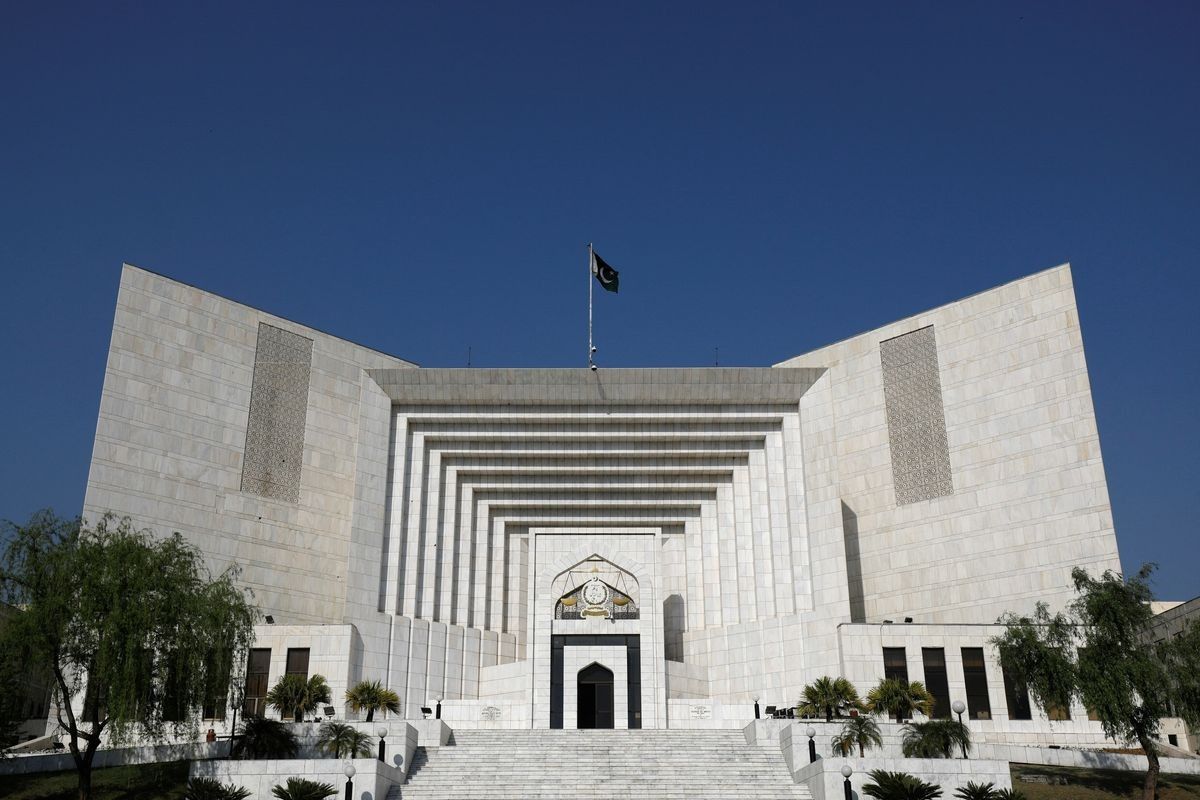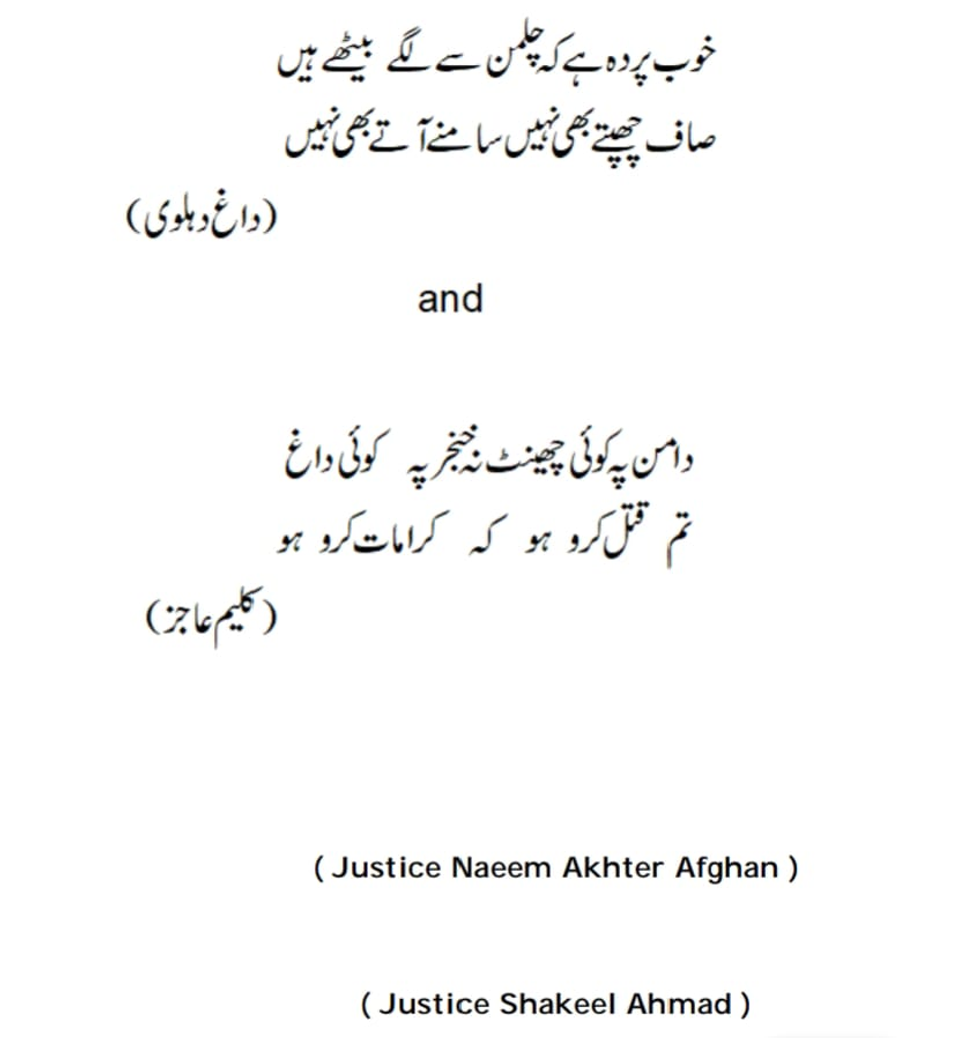Pakistan’s top court upholds transfer of judges amid seniority dispute
In a 3-2 verdict, the Supreme Court upheld the presidential order transferring three judges to the Islamabad High Court, deeming it legal
Ali Hamza
Correspondent
Ali; a journalist with 3 years of experience, working in Newspaper. Worked in Field, covered Big Legal Constitutional and Political Events in Pakistan since 2022. Graduate of DePaul University, Chicago.

A view of Supreme Court of Pakistan.
Reuters
Pakistan’s Supreme Court upheld on Thursday the presidential notification ordering the transfer of three judges to the Islamabad High Court (IHC), rejecting a plea filed by sitting IHC judges who had challenged the legality of the move.
In a 3-2 majority ruling, a five-member constitutional bench declared that the transfers were legal and within the constitutional authority of the president of Pakistan.
The judgment said that the president’s act of transferring judges from one high court to another under Article 200 of the Constitution could not be considered unconstitutional.
The verdict maintains the presidential notification issued earlier this year, which had triggered a legal and constitutional debate within the judiciary.
The dispute arose after the Ministry of Law and Justice issued a notification on February 1, transferring Justice Sardar Muhammad Sarfraz Dogar from the Lahore High Court, Justice Khadim Hussain Soomro from the Sindh High Court, and Justice Muhammad Asif from the Balochistan High Court to the IHC. These transfers altered the existing seniority order in the IHC, sparking concern among the court’s sitting judges.
In response, five IHC judges -- Justice Mohsin Akhtar Kayani, Justice Tariq Mehmood Jahangiri, Justice Babar Sattar, Justice Sardar Ejaz Ishaq Khan, and Justice Saman Rafat Imtiaz -- formally objected to the transfers. They argued that under the Constitution, a judge transferred to another high court must take a fresh oath, and that this should affect their seniority status.
As a mark of protest, the five judges boycotted the oath-taking ceremony of Justice Dogar, who was appointed acting chief justice of the IHC. In an unusual move, President Asif Ali Zardari personally administered the oath, bypassing the traditional practice of a senior judge performing the duty.
The five judges later petitioned the Supreme Court, seeking clarity on whether such transfers reset a judge’s seniority and whether due constitutional process was followed in issuing the notification.
Following extensive deliberations, the top court ruled that the transfers did not amount to fresh appointments and thus did not violate constitutional provisions. The court confirmed that Justice Dogar would continue to serve as the acting chief justice of the IHC.
Moreover, the bench directed the president to clarify the basis for determining seniority and to specify whether the transfers were temporary or permanent. The final decision regarding seniority was left to the president’s discretion.
Dissenting judges raise alarms over executive overreach
However, two judges on the bench -- Justice Naeem Akhtar Afghan and Justice Shakeel Ahmad -- dissented, declaring the presidential notification unlawful and calling for it to be struck down in their dissenting opinions.
Justice Afghan, in a strongly worded dissent, argued that Article 200 of the Constitution allows only temporary transfers and that permanent postings of judges to another high court fall outside its scope. He noted that the February 1 notification had bypassed the Judicial Commission of Pakistan (JCP), in violation of Article 175A of the Constitution, which governs judicial appointments and elevations.
He further criticized the process for lacking proper consultation with the chief justices of the relevant high courts and the Chief Justice of Pakistan. Justice Afghan cited violations of Articles 2A, 4, and 25 -- concerning judicial independence, due process, and equality before the law -- saying that the move compromised the foundational principles of the judiciary.
Crucially, both dissenting judges expressed concern over the underlying motivations for the transfers. They noted that the process appeared rushed and possibly influenced by external pressure.
Addressing arguments raised by the petitioners’ counsel, the dissenting judges referenced a letter written on March 25, 2024, by six sitting IHC judges to the then Chief Justice of Pakistan and members of the JCP. In that letter, the judges alleged interference in judicial matters and intimidation by intelligence agencies, specifically the Inter-Services Intelligence (ISI).
The dissent referenced the counsel’s contention:
“Learned counsel for the petitioners contended that six sitting Judges of IHC wrote letter dated 25th March, 2024 to the then Hon’ble CJP/Chairman JCP, Senior Puisne Judge, Supreme Court of Pakistan/Member JCP and three other Members of JCP with complaints of interference in judicial functions and/or intimidation of Judges of IHC by the Intelligence Agencies/ operatives of the Inter-Services Intelligence (ISI); the issue was taken up in full court meeting of the Supreme Court as well as on the judicial side and it had triggered the process for transfer of three Judges to IHC from LHC, SHC and BHC.”
Rejecting the notion that intelligence agencies played a legitimate role, the dissent clarified:
“The above contention raised by learned counsel for the petitioners cannot be believed as the Intelligence Agencies, including ISI, have no role under the Constitution for appointment or transfer of Judges. Being subordinate to the Executive, the Intelligence Agencies, including ISI, cannot override the Executive, the Judiciary, the Constitutional bodies and the Constitutional office holders.”
A poetic endnote with a sting
In a literary flourish, the dissenting judges concluded their short order with a poetic verse, offering a biting and sarcastic critique of the prevailing state of affairs.











Comments
See what people are discussing